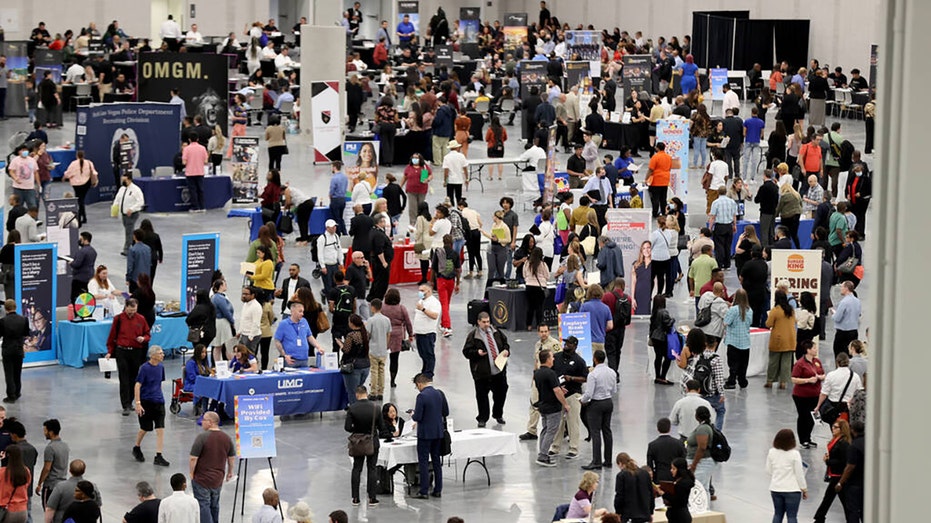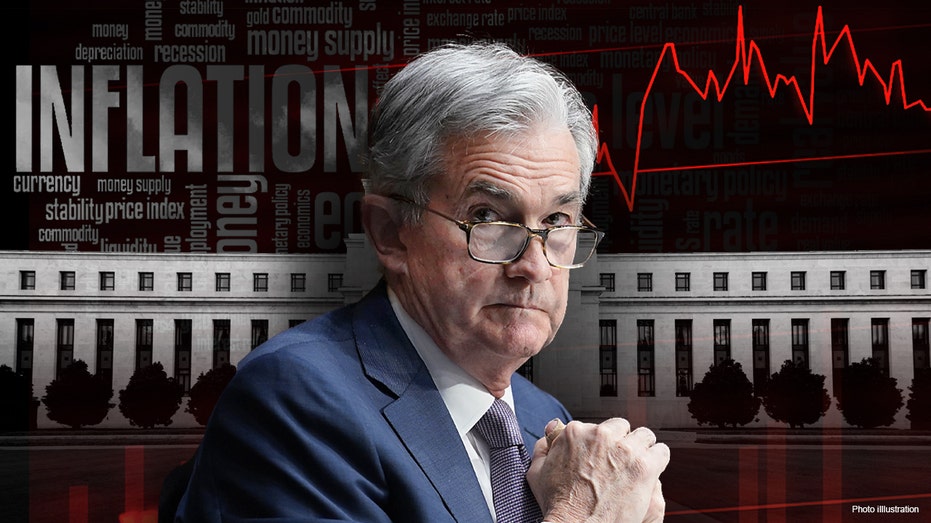Labor market may skirt U.S. recession: NABE
The latest NABE survey shows a recession is likely next year, but the labor market may remain relatively strong despite the downturn
November jobs report shows US economy 'a lot stronger' than Fed would like: Anthony Chan
Former Chase chief economist Anthony Chan discusses what the better-than-expected November jobs report says about the U.S. economy and inflation on 'Varney & Co.'
A majority of business economists believe that the U.S. economy will continue to slow and enter a recession next year, but the impact on the labor market may be limited relative to recent downturns.
That's according to the results of a new survey published by the National Association for Business Economics (NABE) on Monday, which showed 57% of respondents believe the probability of recession in 2023 is greater than 50%. A 52% majority of economists who responded believe a recession will begin in the first quarter of 2023.
The survey, which was conducted November 7-18, pointed to the Federal Reserve's continued tightening of monetary policy in an effort to tame inflation as the biggest challenge facing the economy. When asked to identify the greatest downside risk to the economy, 65% of respondents cited too much monetary tightness.

Jobseekers visit booths during the Spring Job Fair at the Las Vegas Convention Center Friday, April 15, 2022. (K.M. Cannon/Las Vegas Review-Journal / Getty Images)
A similar question was posed about the greatest upside risk and 50% of respondents identified the Fed achieving its desired "soft landing" by reining in inflation without a severe recession. Economists surveyed were skeptical about the likelihood of a soft landing, with 77% putting the probability of one at 50% or below.
US ECONOMY ADDS 263,000 JOBS IN NOVEMBER, BETTER THAN EXPECTED AS HIRING REMAINS SOLID
Survey respondents expect that monthly job growth will slow over the next year but don't forecast a contraction in payrolls. The panel expects monthly job gains to decline from an average of 370,000 in 2022 to just 76,000 in 2023 – with the smallest gains in the first part of next year. The most recent jobs report from the Labor Dept., which was released on Friday, found that employers added 263,000 jobs in November.
NOVEMBER JOBS REPORT BREAKDOWN: WHICH INDUSTRIES HIRED THE MOST WORKERS?

Carmelia Bello is a bodega owner in Brooklyn, New York, who said inflation and crime are hurting her business. (iStock / iStock)
Slower growth in the labor market is expected to correspond with an uptick in the unemployment rate, although it's still forecasted to remain at a lower level than in prior economic downturns according to the NABE survey.
A 56% majority of respondents think the unemployment rate will peak at 5% or lower, while 17% think it will reach 5.5% or more – which would be similar to the unemployment rate during past recessions. The unemployment rate was unchanged month-over-month at 3.7% in the latest jobs report.
NEW YORK FED'S WILLIAMS WARNS OF A ‘WAYS TO GO’ BEFORE INTEREST RATES ARE HIGH ENOUGH

The Federal Reserve's battle against inflation isn't expected to end in the near future based on the results of the NABE report: 44% of the economists surveyed expect that inflation won't decline to the Fed's target rate of 2% year-over-year inflation until 2024, while another 42% believe the Fed won't reach that target until 2025 or later.
Economists surveyed are forecasting more aggressive interest rate hikes by the Fed next year relative to their expectations in the last NABE report, which was released in October.
GET FOX BUSINESS ON THE GO BY CLICKING HERE
Two months ago, the median estimate of panelists expected the federal funds rate target to top out at 4.25% in the first quarter of 2023 before declining to 3.875% in the last two quarters. Respondents' latest forecasts now have the federal funds rate target topping out at a median of 4.875% in the first half of 2023 and then slowly declining to 4.625% in the fourth quarter of 2023.
"The more subdued outlook coincides with materially higher expectations for interest rates at the end of this year and next," said Dana Peterson, the NABE Outlook Survey chair and chief economist for The Conference Board. "Panelists expect job growth will slow over the first three quarters of 2023 but remain positive."




















